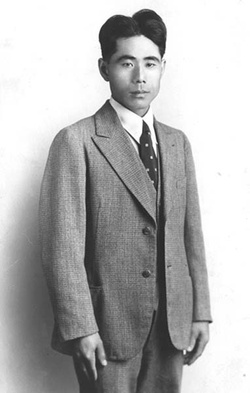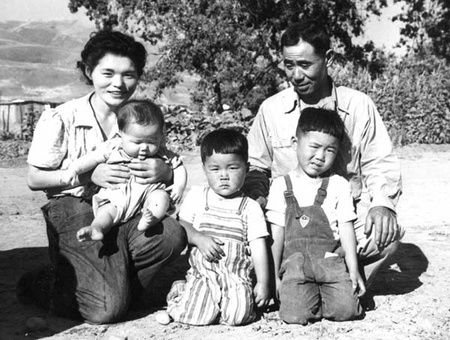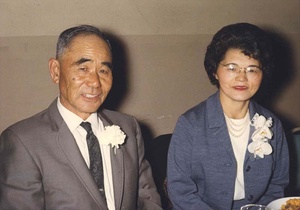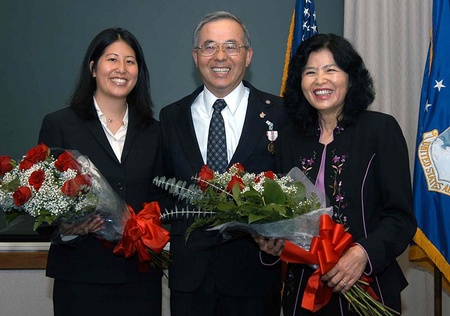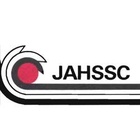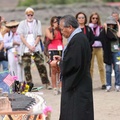As a “baby boomer” raised by Issei parents on a farm in San Jose, CA after the war, I’ve often thought about how different it might have been if I had been raised as part of the “Dr. Spock1 generation” of my suburban hakujin (Caucasian) classmates. I often heard my hakujin friends have discussions with their parents about, (1) why they weren’t allowed to do something; (2) making excuses for not getting something done; or (3) denying blame when they were being chastised for something they did. Such discussions never took place in my house.
In many conversations with Nisei male acquaintances over the years, I found that my unique Issei-household experience was not so unique. They all used words like this when describing childhood interactions with their fathers: no nonsense, no back-talk, no excuses, no second chances, and no praise. In my recollections below, any conclusions are limited to Nisei men because I have little understanding of Nisei women (or women in general, according to my wife) and how they were disciplined by their parents.
Readers might conclude from the title of this article that I was an emotionally abused child. Far from it. My relationship with my parents was actually quite good and got even better once I was an adult. However, things in my house were a bit different than the typical American household. The title derives from the fact that more often than not, I was called “baka” by my father instead of Yoshio. Baka means “fool” or “idiot” in Japanese. When you grow up on a farm, you are expected to do chores to the best of your ability without any prompting. Mornings started with my father yelling, “Oi! Baka, get up! Do you know what time it is?” I did not have an alarm clock. However, my father’s bellowing served as a poor, but effective substitute.
Expectations in our house were rarely discussed, unless we did not meet them. Then, feedback was quick and to the point. Behavior was one area where an economy of words was exercised in extremis. If we were “messing around” at the dinner table, we got one warning: “Baka, stop that.” If such behavior continued, my father demonstrated that he had the most flexible arms of any 5' 3" man I ever met; he could conk any one of us on the head from his seat at the head of the table. As the third child and third son of four kids, I learned quickly by observing what happened first to one of my older brothers.
By the way, they were known as Baka, too, but we always seemed to know which Baka was being addressed when our father yelled at us. When we did something particularly bad in his eyes, my father would escalate our nickname to “Aho!,” meaning “Idiot” in capital letters. If combined in a sentence with “inu” or dog, we knew we were in serious trouble.
Remember the phrase, “Spare the rod, spoil the child?” Well, my father never used a rod, but improvised with his hand or grabbed whatever branch was handy from the nearby fruit trees. One memorable incident involved my accidentally tipping over a few crates of strawberries, ruining hours of work. My father ripped a big branch off a tree laden with ripe cherries while railing at my brothers and me. He gave us a couple of swats a piece and ordered us back to work in the hot summer sun. I always wanted to tell him that he should strip the cherries off the branch first so that our clothes would not be stained, but never had the courage to do so.
Remember, no back-talk meant, no back-talk. If you argued or tried to blame someone else, you were really in for it. We learned to take our punishment silently, even if we thought it was unfair. My father rarely engaged in corporal punishment with me, but I remember the few times vividly. There is something about an angry father with spittle running down his chin with a sharp farm implement in his hand that makes one toe the line. He was never abusive, but certainly got his expectations across!
The one time that I thought I was going to be killed (I was only eight years old) was when I crashed the farm tractor into a tree and broke the steering arm. My brother had the foolish idea that it was time for me to learn how to drive the tractor; he was wrong. After crashing the tractor, I sat wailing against a tree while my brother went to get my father. I had stopped crying after about 20 minutes, but started up again in earnest when I saw my father coming toward me in the distance with a massive wrench in his hand. I thought; “This was The End!” Surprisingly, my father just looked at me without saying a word and proceeded to try and repair the tractor. At dinner that night, he jokingly referred to my “driving lesson” that afternoon. I thought, “Hallelujah, Papa has finally seen the light and won’t be so harsh!” Well, that thought lasted only a few days until the next time I fouled up and was severely chastised.
Swift discipline was the consequence of not meeting our Issei father’s expectations. Our father rarely spelled out what was expected of us, so how were we to know? Surprisingly, we did seem to grasp the basic Issei/Meiji concepts that he was trying to teach: honesty, the value of hard work, filial piety and obedience, family and personal honor, proper deportment, giving your best, sacrifice, gaman, etc.
However, the standards in meeting these expectations were not always clear to us. As the third son, I consider myself the lucky one. Since my Japanese was not very good, much of my understanding of the subtleties of paternal expectations was gleaned from how my brothers “measured up.” Thus, I was able to avoid situations where I knew I would foul up by observing what happened to my siblings in similar circumstances. Needless to say, my brothers, especially the oldest, received the brunt of the lessons meted out by our father.
In looking back at my childhood, I realize that my father’s approach to rearing his sons was to let us know swiftly when we did not meet his expectations, not when we did. Praise was given only indirectly. We might hear a grunt when we did something good, but rarely any words. Praise was indirect, such as when we would hear our parents discussing our achievements with adult relatives or friends. That was enough for me. I did not need to hear it directly because I knew they were proud of something we did.
However, I don’t think my father’s methods worked very well with my oldest brother. In an Issei family, the favored first son had the privilege of inheritance rights from his parents, but along with the privilege came the responsibility to take care of the family legacy. Higher expectations and inexperienced parenting skills with their first-born sons increased the chances that first sons were going to have pretty tough childhoods.
Unfortunately, my oldest brother had a miserable childhood because he never seemed to understand what was expected of him and rarely met my father’s unspoken expectations. Thus, his childhood was filled with anxiety, stress, and internal rage. My father always seemed to be frustrated with my brother’s inability to meet his expectations and did not hide his displeasure well. Thus, their relationship became a life-long cycle of disapproval, recrimination, and alienation. This is a sad example of when the Issei approach of unspoken expectations and negative reinforcement can crush a child’s spirit if that child doesn’t understand early on what is expected of him.
Several first sons that I have conversed with gave anecdotal evidence that, indeed, their childhoods were tougher than their younger siblings. As a third son, I think I saw the best of what an Issei father had to offer. By the time I came around, my father had learned from his mistakes with my brothers. He let me get away with stuff that I don’t think he tolerated earlier. I think that is the way of most parents with multiple children. Later in my childhood, I was able to understand my father’s expectations better because I could observe the way he led his own life. Everything he and my mother did was for our sake. I did not want to let them down once I realized this. He also talked a lot about life with me in conversations that I don’t think he had with my brothers, especially the eldest. Unlike most of my friends, I had the opportunity to talk with my father a lot because I worked with him on his gardening route (without pay, of course) on Saturdays during the school year and all during the summers of my high school years.
The greatest compliment my father paid me was at the end of my childhood. I had just finished high school and he asked me to take over his gardening route for two months because he had to go to Japan to visit his ill sister. I was flattered that he would trust me with his whole business. Once he got back, he complained to me that I had done too good a job of maintaining his customers’ yards; now they would expect such performance from him! Not exactly an “Atta Boy,” but from Papa this was high praise.
Although both of my parents have passed on I still think of them often. As a tour docent at the Japanese American National Museum, I am able to share their immigrant story of struggle, sacrifice, betrayal, and acceptance every week with students of all ages. My father has been gone for over twenty-five years, but I still can hear his voice waking me up on our strawberry farm in San Jose. I am lucky and proud to have been an Issei’s son—I am just glad that I was the third Baka in the house!
Note:
1. Dr. Benjamin Spock, 1903-1998, pediatrician, authored Baby & Childcare, in 1946. The book influenced generations of parents to be more flexible and affectionate with their children and to treat them as individuals (Wikipedia).
* This article was originally published in Nanka Nikkei Voices: The Japanese American Family (Volume IV) in 2010. It may not be reprinted or copied or quoted without permission from Japanese American Historical Society of Southern California.
© 2010 Japanese American Historical Society of Southern California


